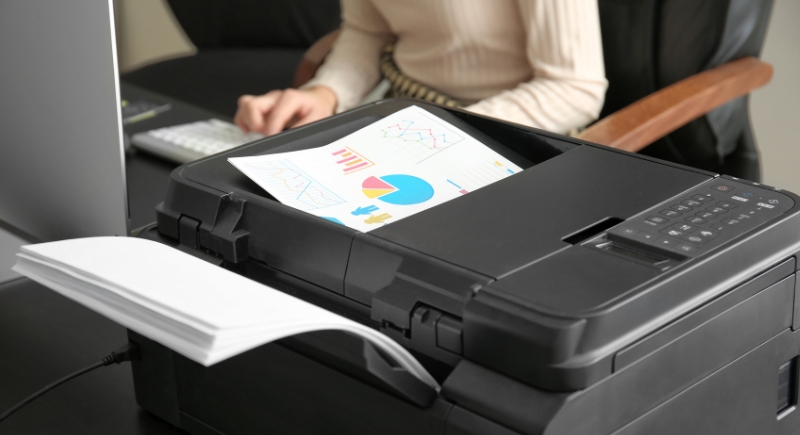Bizarre ‘Unwritten Rules’ Boomers Live By That Make No Sense to Gen Z
Every generation has its habits, but boomers take routine to an art form. The sensible customs from the 1970s have hardened into sacred traditions that leave Gen Z absolutely bewildered. These old-school “rules” reveal how differently generations define normal life, and why those differences can be so amusing to observe.
Phone Calls Are Always the Right Way to Communicate

Credit: base Image
Boomers treat phone calls like the gold standard of communication. Texting feels lazy or impersonal to them, so they’ll dial instead, even for questions a quick message could solve. Many genuinely believe that hearing a voice builds a stronger connection.
Printing Emails Like It’s 1998

Credit: pixelshot
Years of relying on paper archives shaped the printing reflex long before digital backups became dependable. Younger people tend to trust search bars and cloud folders more. The clash becomes obvious when home printers are utilized for something viewed on-screen seconds earlier.
Loyalty to Companies That Don’t Deserve It

Credit: Getty Images
There’s a strange pride in sticking with the same cable company for 25 years, even if the service is awful. Boomers believe in brand loyalty the way people once believed in pensions: the longer you stay, the more it’ll eventually pay off.
Cash Is Still “Real” Money

Credit: pexels
Carrying a wallet thick with bills is still common among boomers. Even though digital payments are faster and more secure, they feel less trustworthy to them. Many still withdraw a weekly “cash allowance” from the bank. This rule once helped people budget before apps existed, but now it’s mostly ritual.
Showing Up Early Means Respect

Credit: Getty Images
Arriving ahead of schedule feels like the responsible thing to do. Baby Boomers often learned the importance of punctuality in workplaces where late arrivals negatively impacted performance reviews. This mindset spills into social plans, appointments, and casual gatherings.
Refusing To Negotiate Prices

Credit: pexels
Younger adults use comparison tools, discount apps, and customer retention lines as part of their normal budgeting process. Both groups want fairness, but boomers tend to accept listed prices without question. To them, haggling was limited to car lots or big purchases during their upbringing, so negotiating a bill feels uncomfortable.
Working Through Illness Is a Virtue

Credit: Prostock-studio
Sick days are optional in boomer culture. Many wear exhaustion like a badge of pride and are convinced that pushing through shows strength. They came of age when job security meant loyalty and sacrifice. Modern research links this mindset to burnout and reduced productivity.
Trusting Professionals Without Question

Credit: halfpoint
Expert opinions carry tremendous weight for many boomers. Doctors, mechanics, and advisors held specialized knowledge that wasn’t easily accessible before the internet. That history shaped a deep respect for authority. Younger generations research issues themselves and ask more questions.
Face-to-Face Meetings Solve Everything

Credit: pexels
Nothing says “this is serious” like sitting around a table with printed agendas. For boomers, in-person meetings reflect commitment. Even if it’s just to review a timeline, being physically present matters. Digital tools like Slack or Zoom make these meetings feel excessive to Gen Z.
Television Is a Group Event

Credit: pexels
Specific chairs, snacks, and scheduled shows give structure to their evenings. Streaming services disrupted that ritual, but many still cling to appointment viewing. It’s less about the show and more about the habit of being fully present for something shared.
Keeping Family Secrets at All Costs

Credit: pexels
Privacy used to keep families strong, and that mindset made issues like mental health harder to talk about. Gen Z takes the opposite approach by openly addressing personal struggles and encouraging transparency. These conflicting norms often emerge during large family gatherings, particularly when younger relatives speak candidly.
Believing Technology Should Be Feared, Not Used

Credit: Aflo Images
Early tech came with warnings about scams, viruses, and privacy risks, which shaped long-term suspicion. Voice assistants and cloud storage still evoke unease among many older adults. While these concerns stem from early online caution, they haven’t kept pace with how digital life now works for the younger ones.
Ironing Clothes That Don’t Need Ironing

Credit: pexels
Gen Z relies on steamers or the “hang it in the bathroom during a shower” trick, customs that make parents frown. They have learned from older times when workplaces expected polished attire and home irons were part of weekly chores. Even T-shirts and jeans sometimes get ironed in boomer households.
Keeping Appliances and Electronics “For Parts”

Credit: pixabay
Basements and garages across America hold broken radios, old vacuums, and dusty VCRs that Baby Boomers refuse to discard. They insist the items might be useful “for parts” one day, even though those parts rarely get used.
Letting the Car Warm Up Longer Than Necessary

Credit: Odua Images
Boomers often keep their cars running for several minutes before driving, a habit rooted in older engines that required warming to prevent damage. Modern engines warm up quickly, which makes lengthy idling unnecessary.